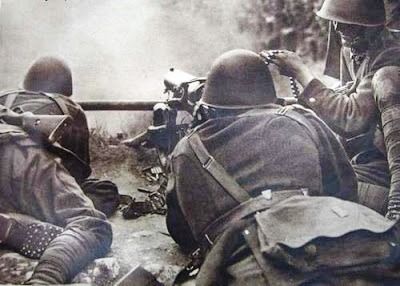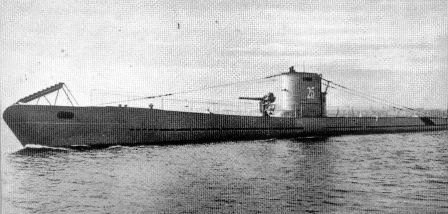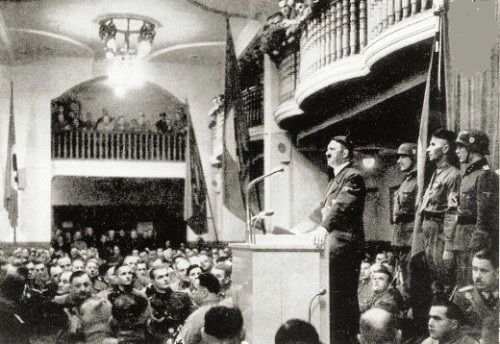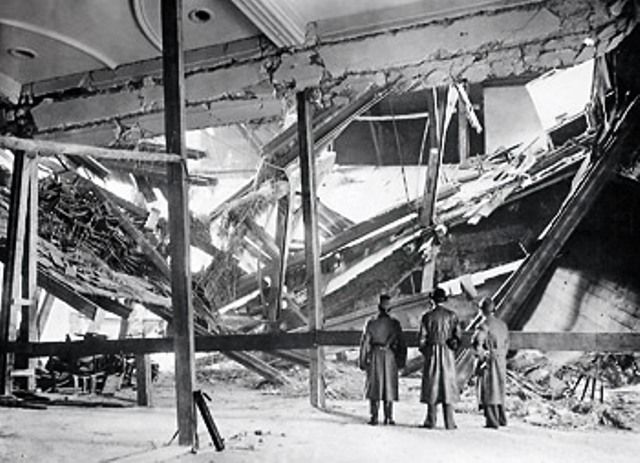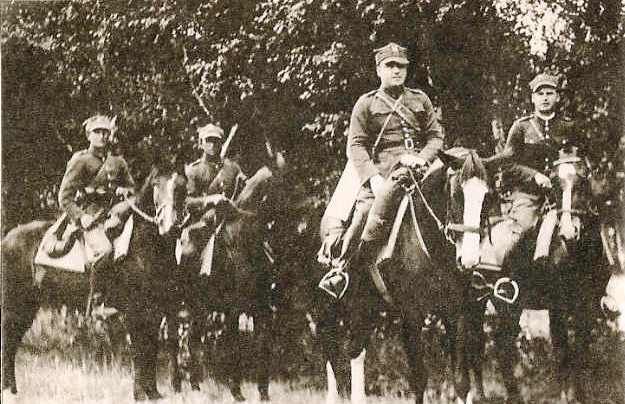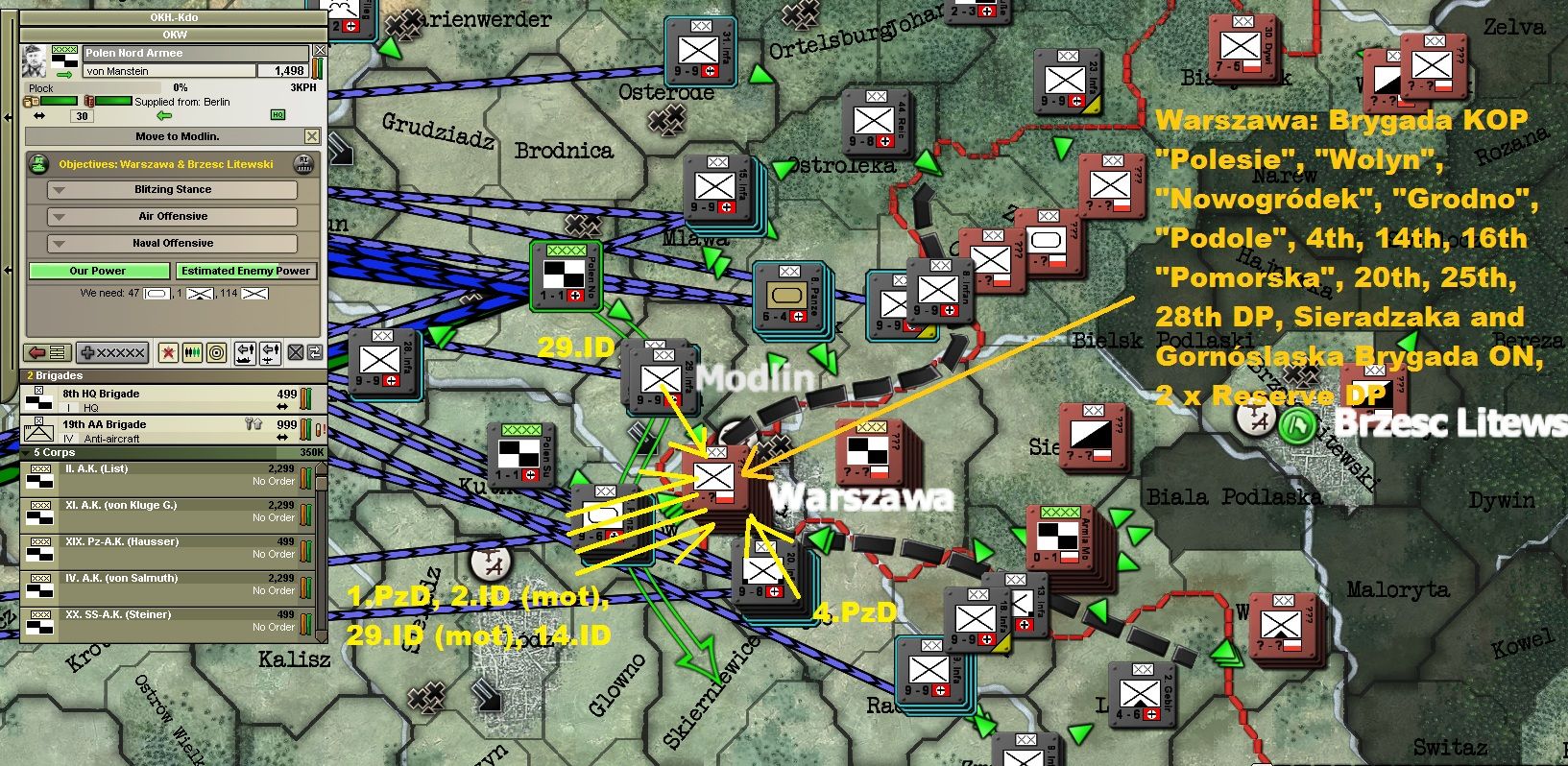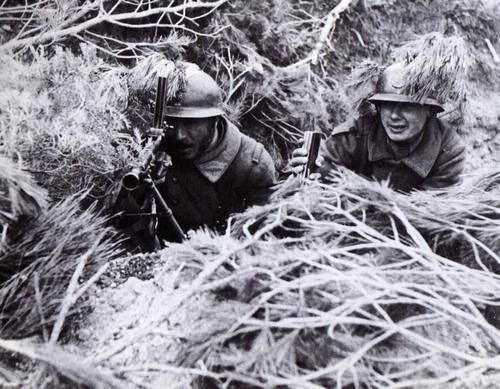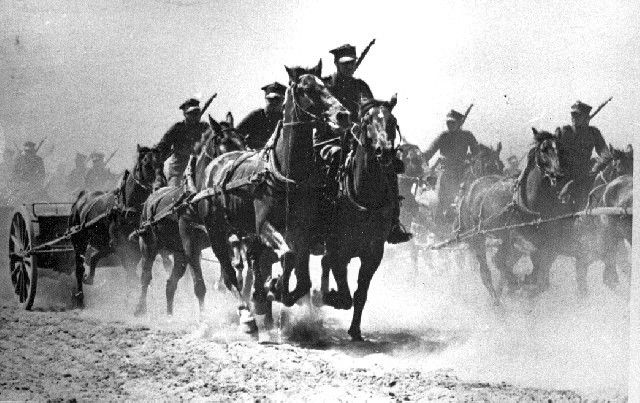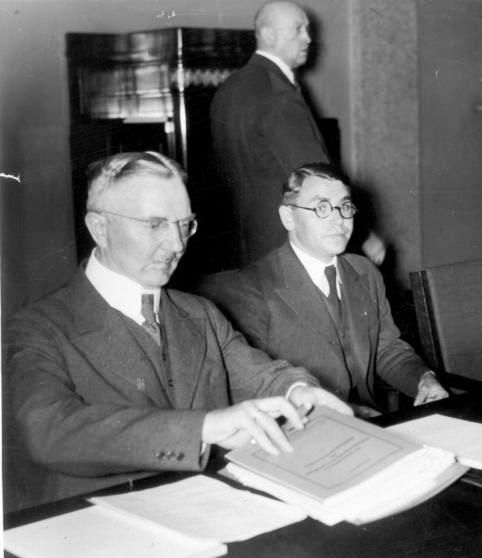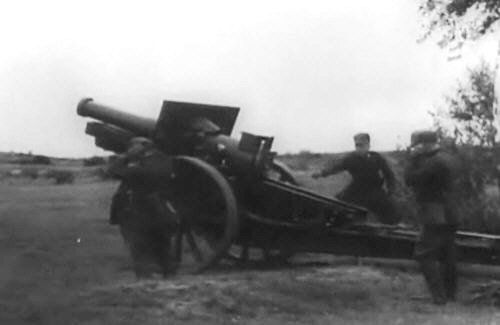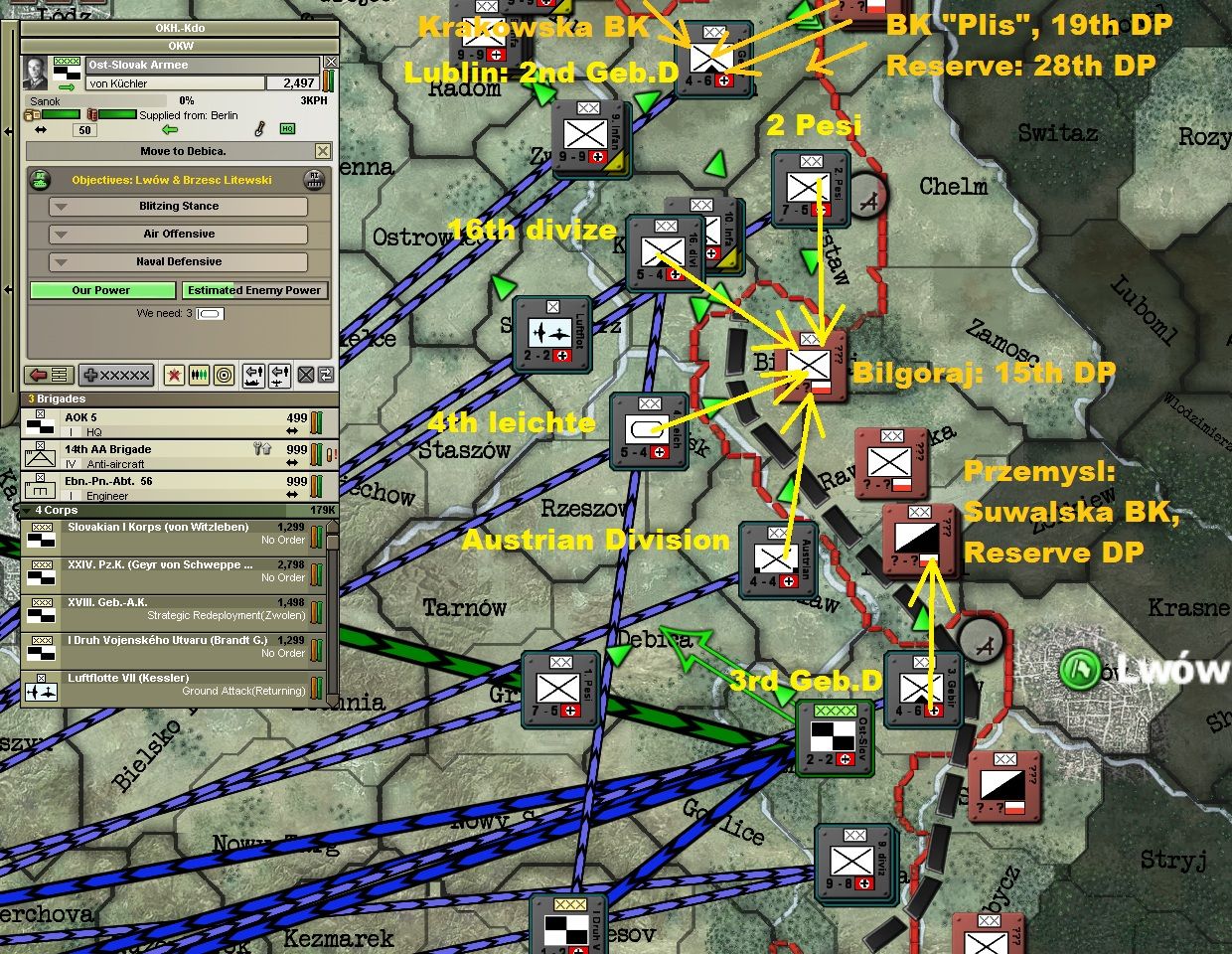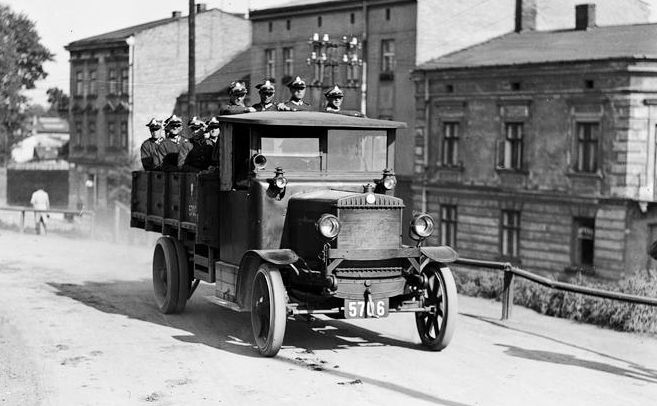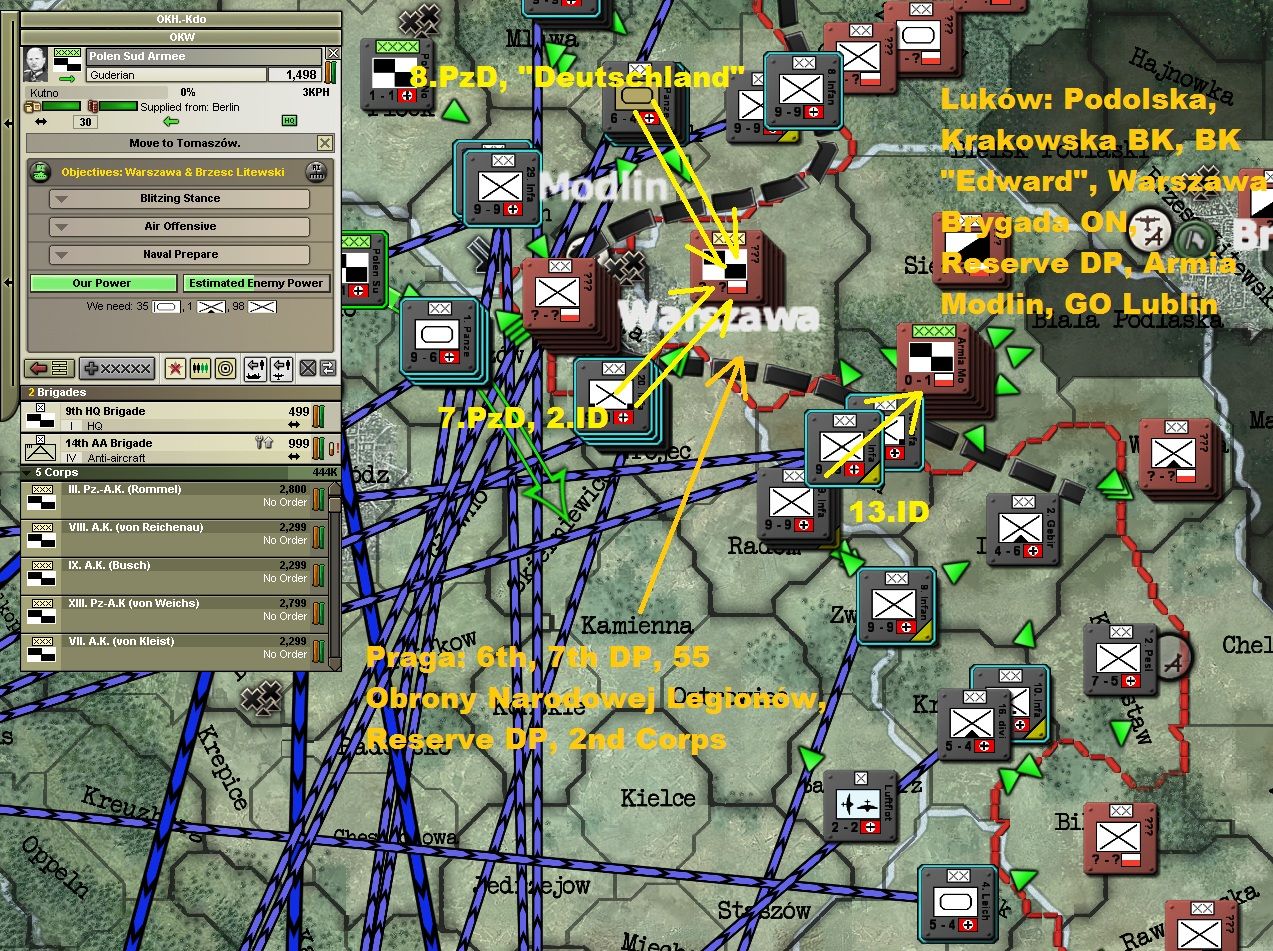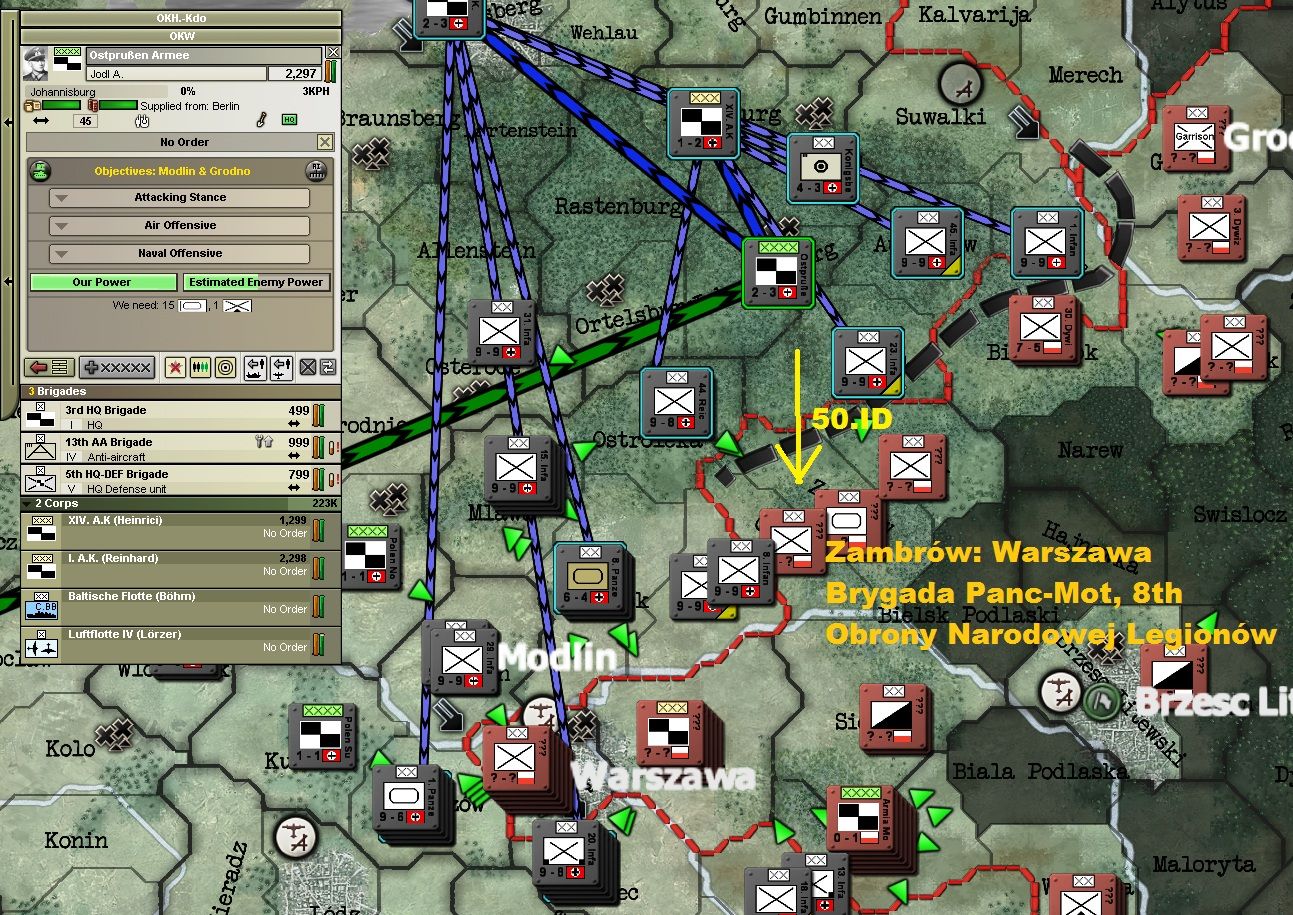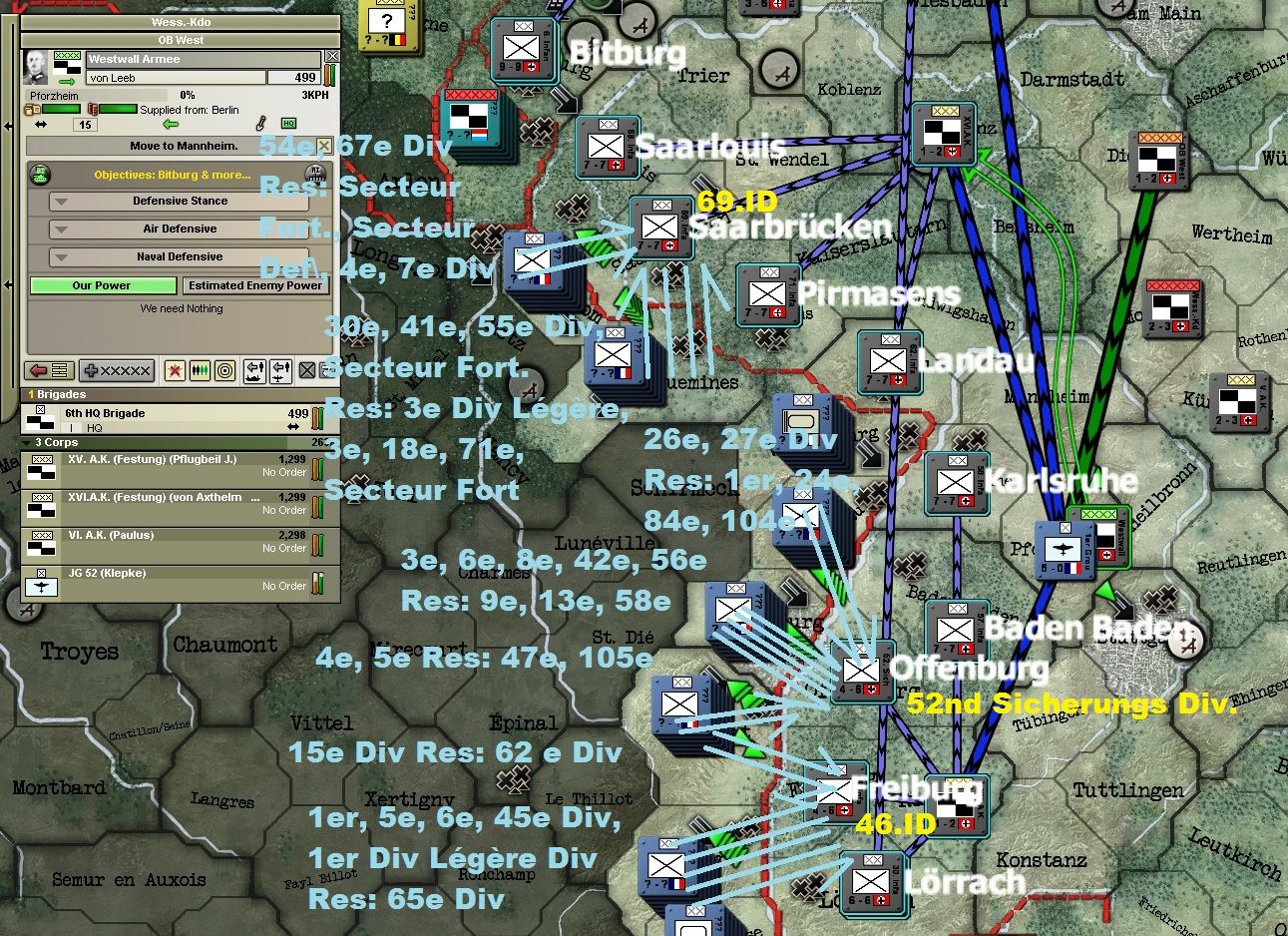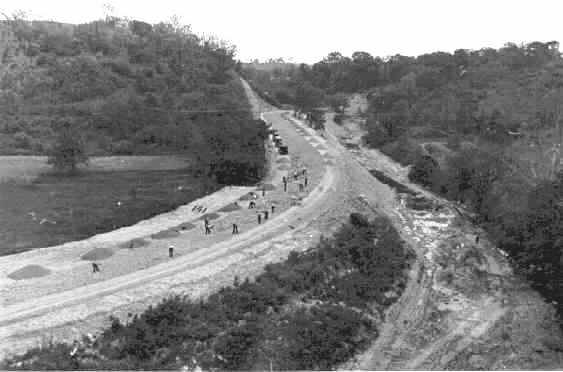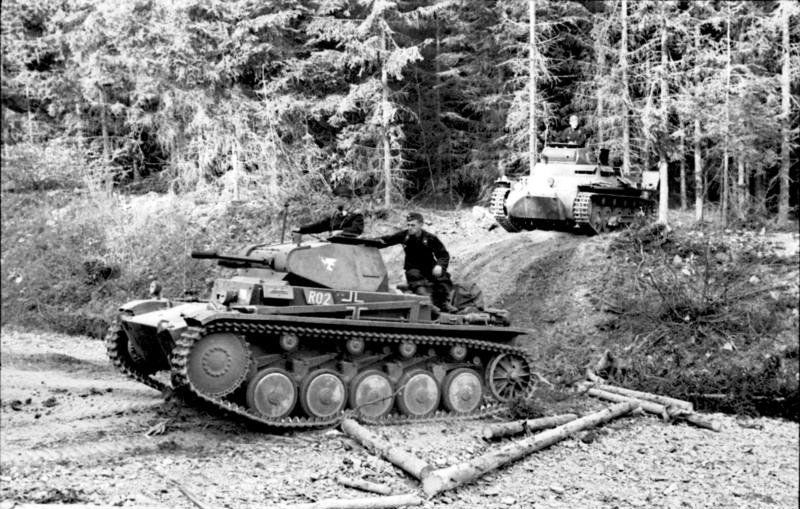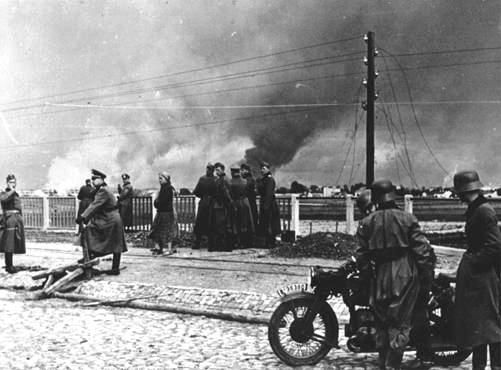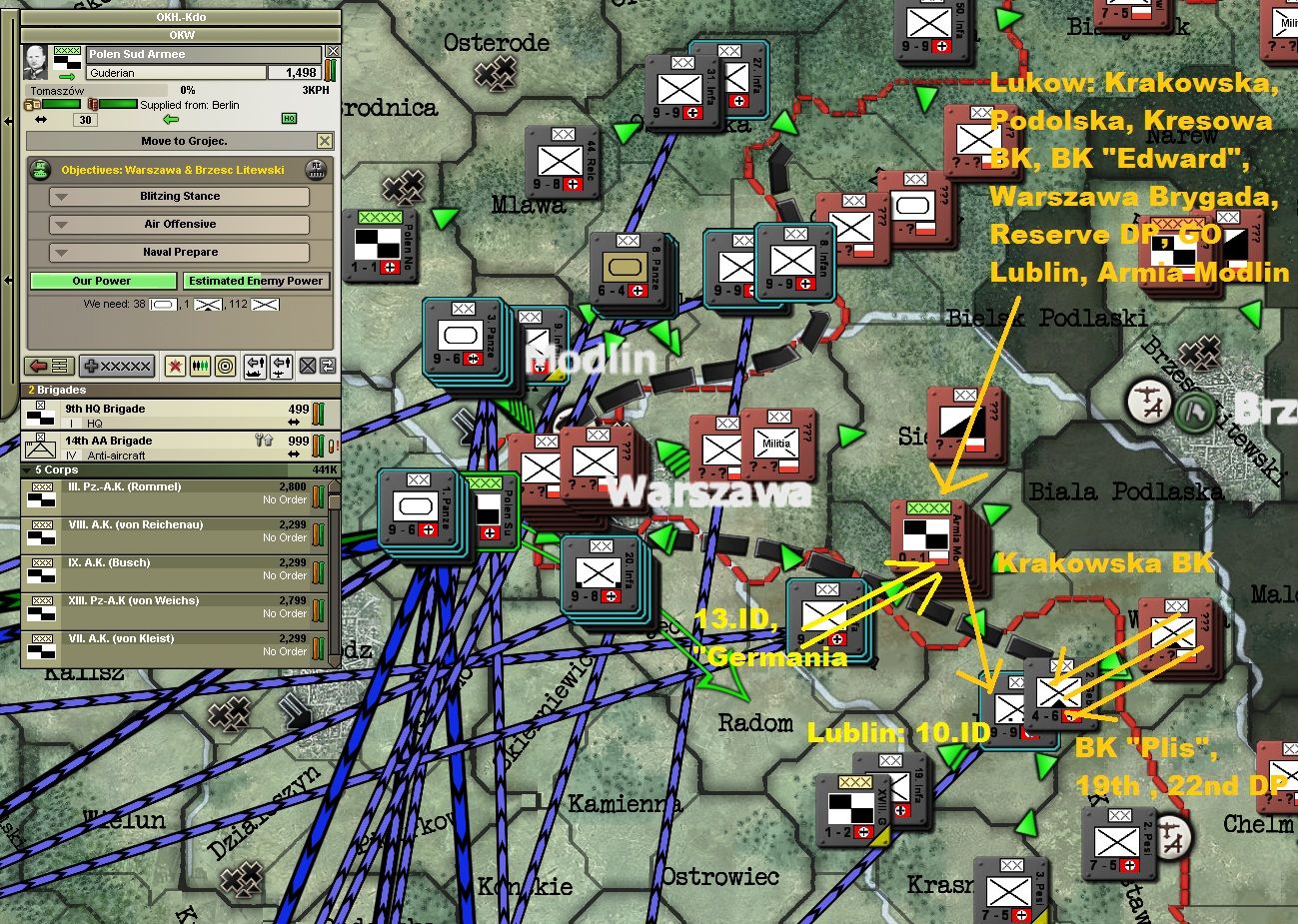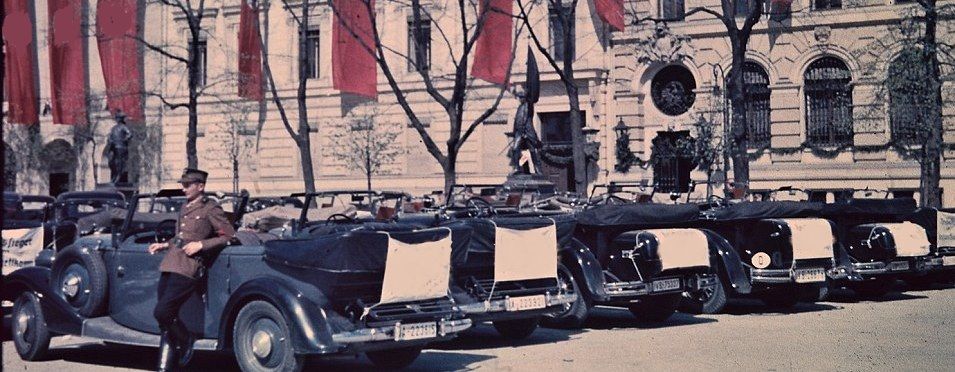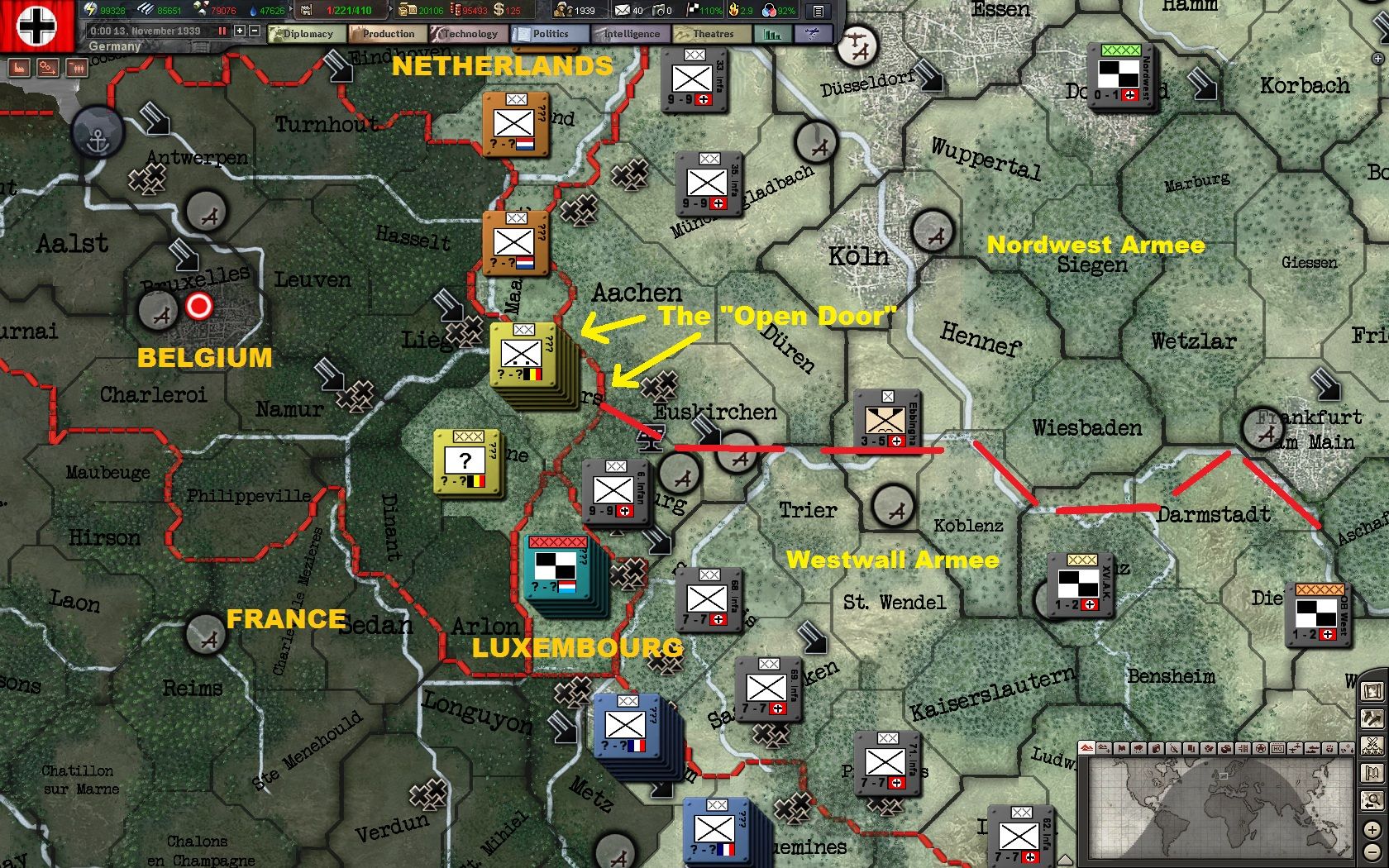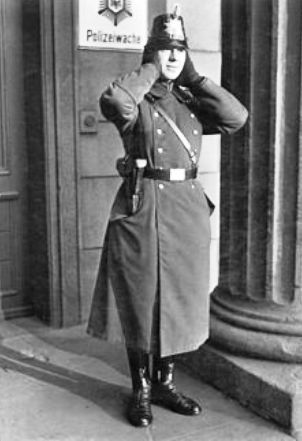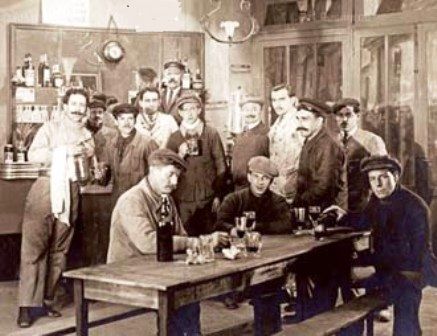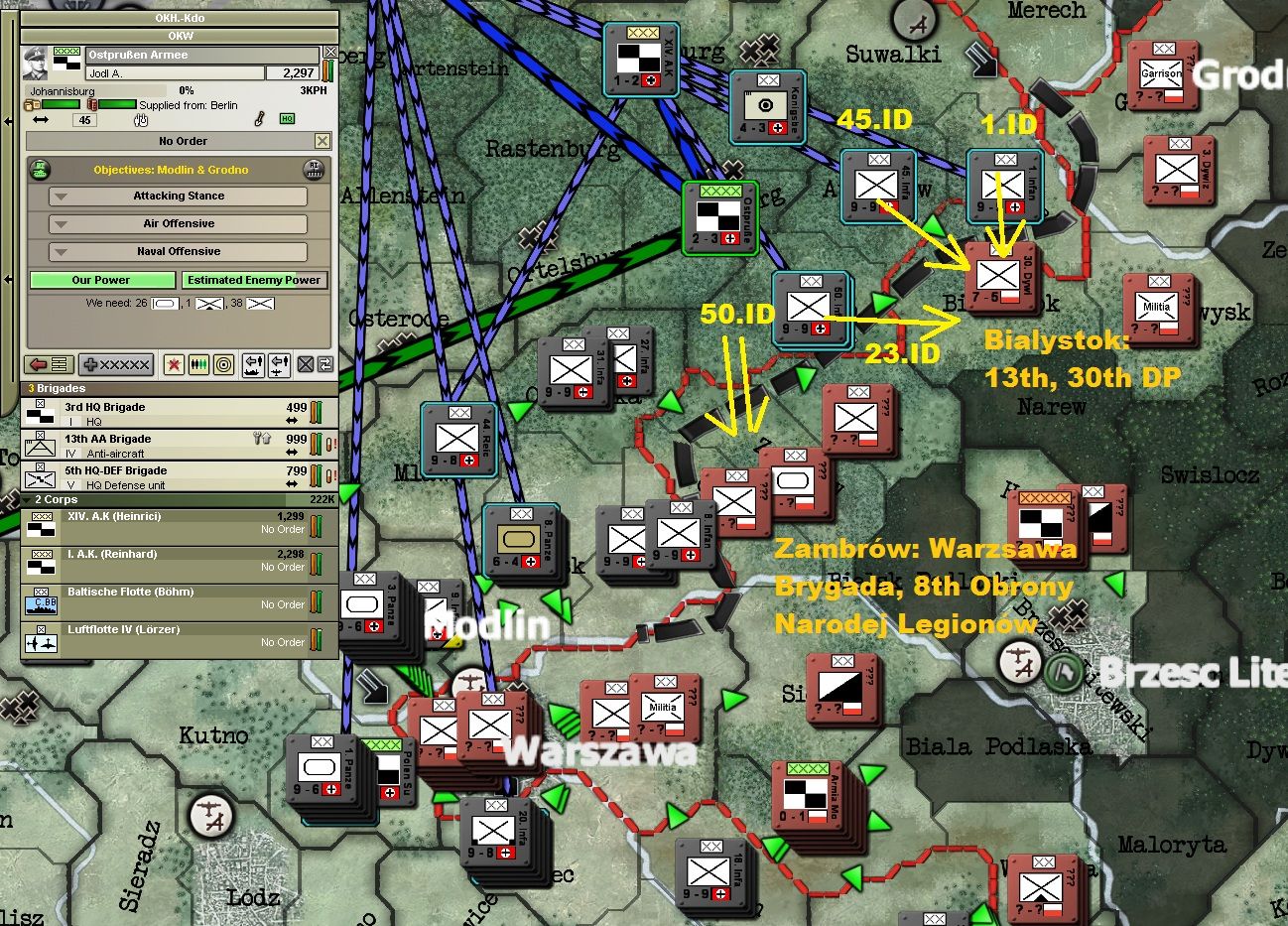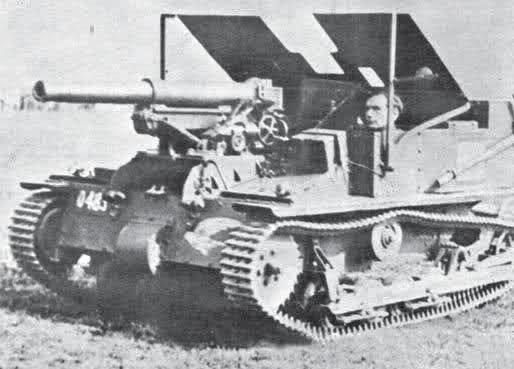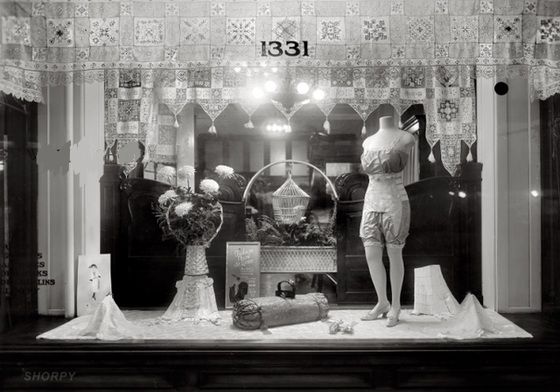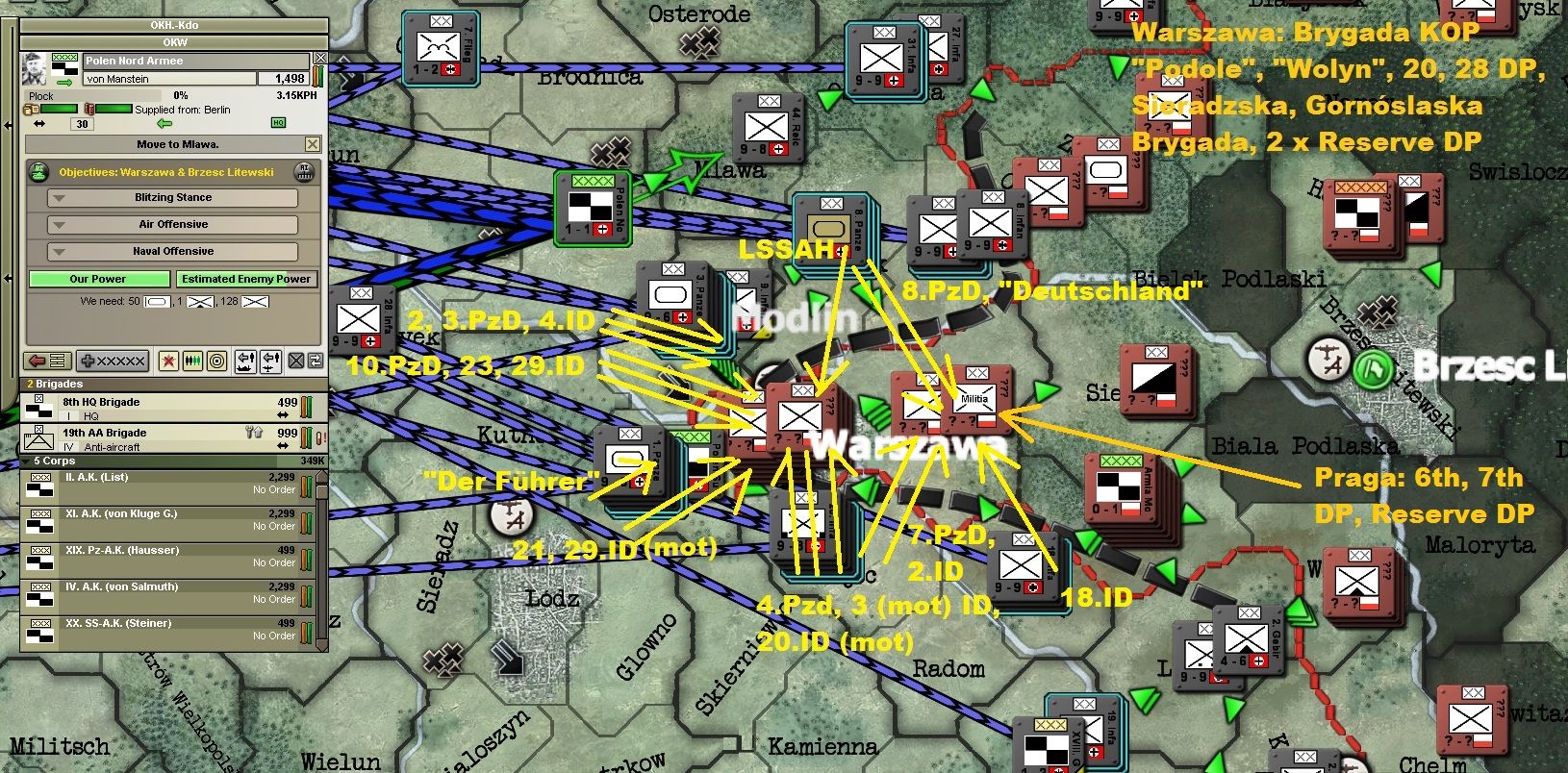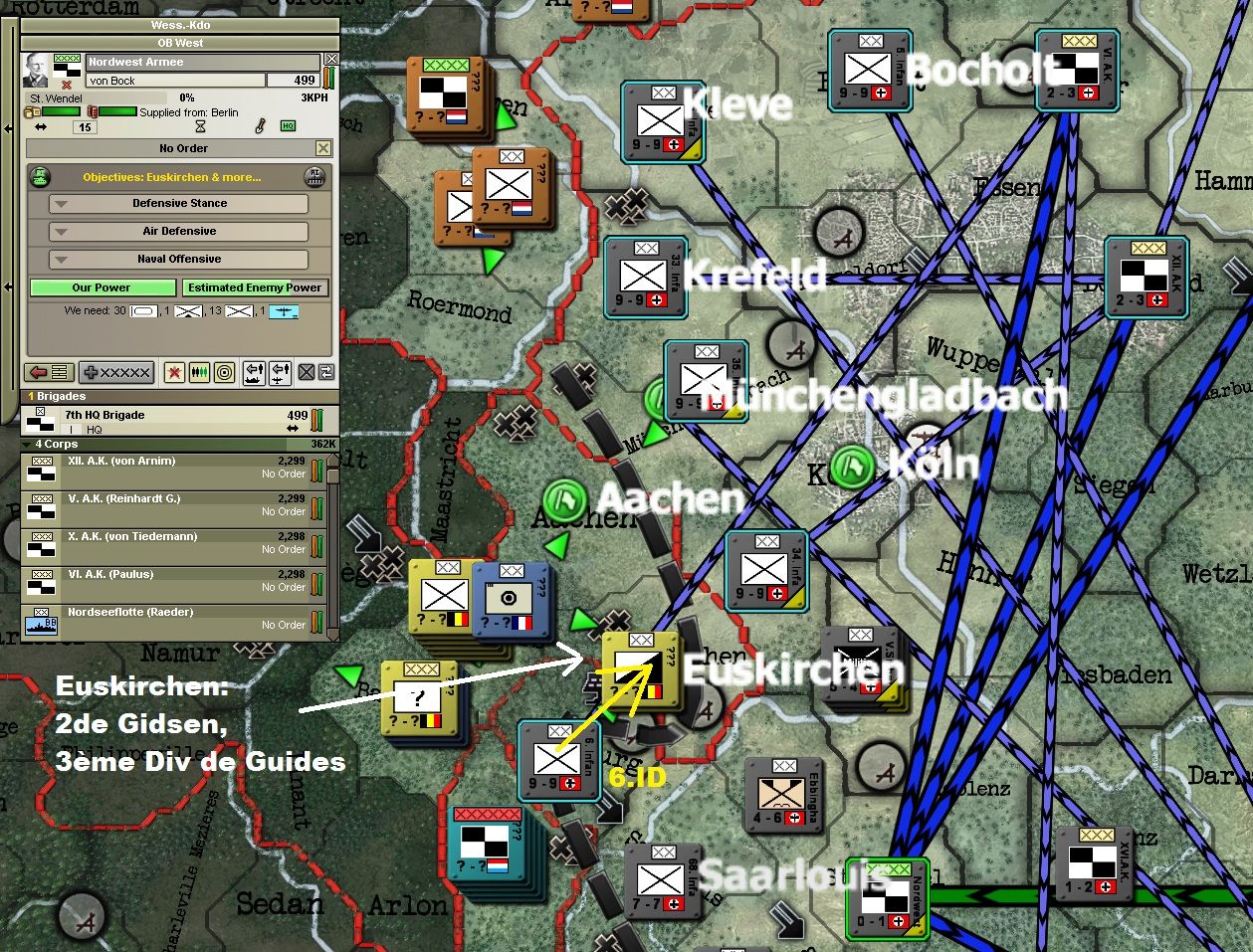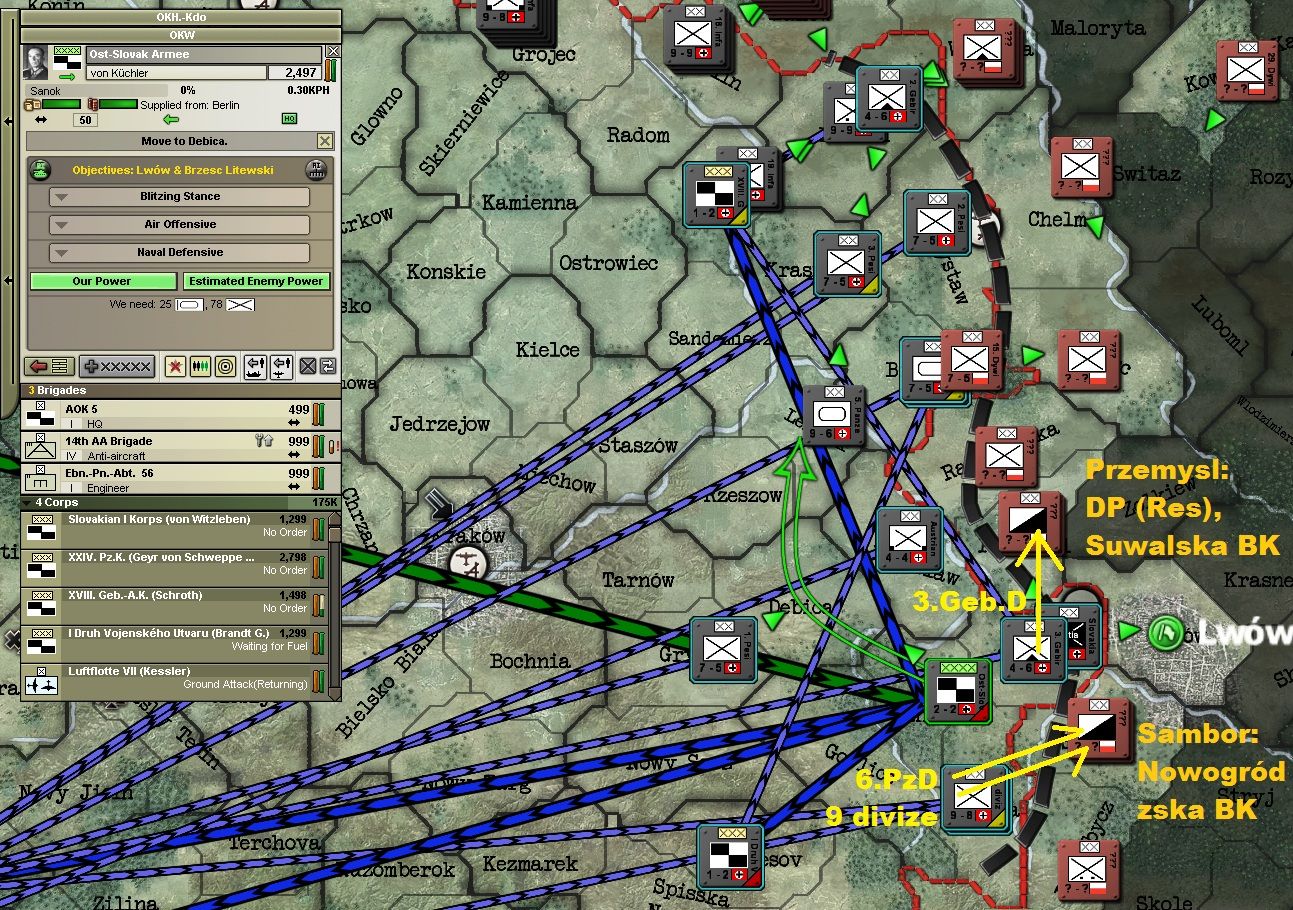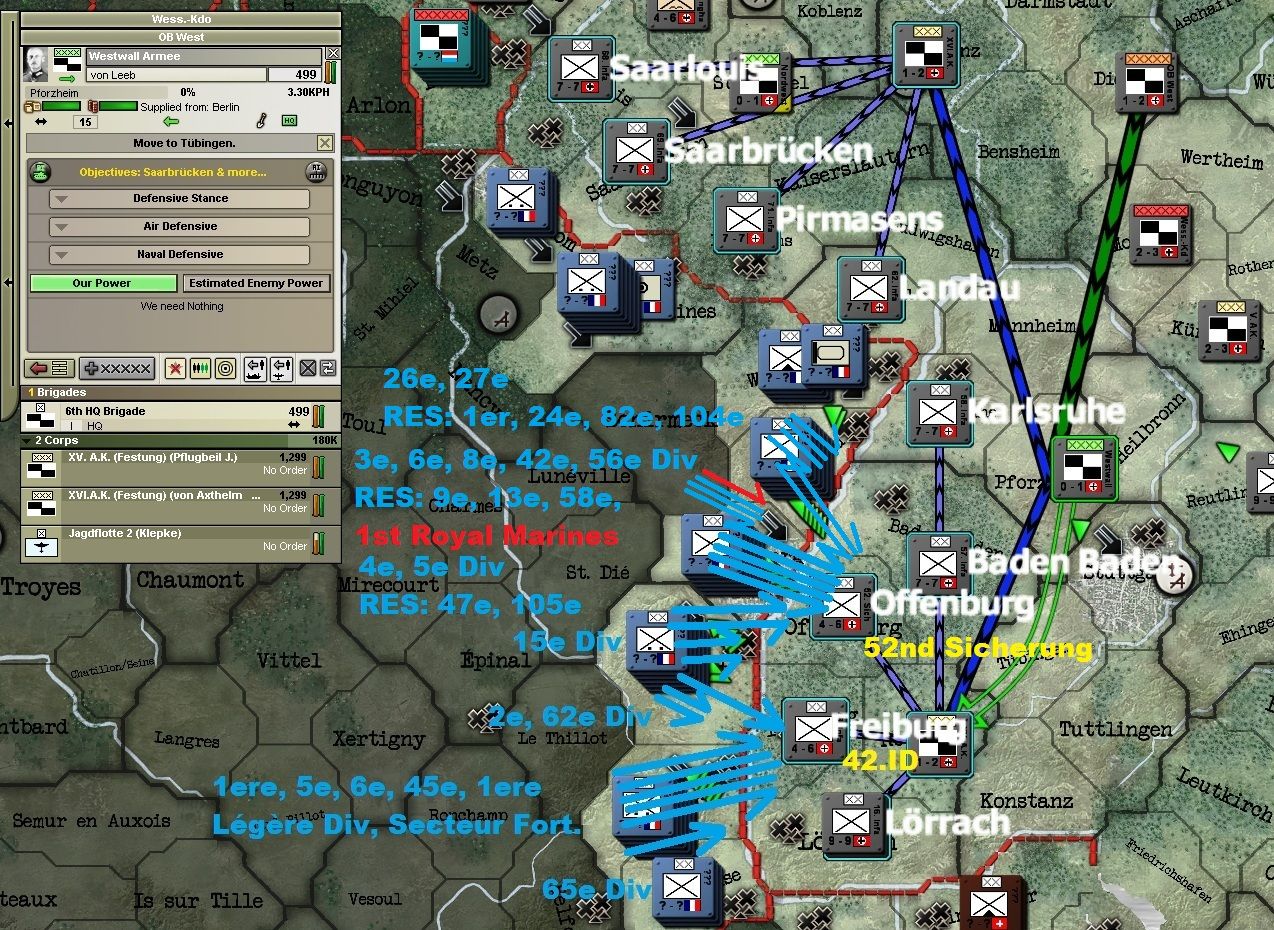Doppelgänger: the Untold Story of the Third Reich
A man is walking along the streets of Berlin, obviously not going anywhere in particular, simply enjoying the bracing conditions. Dressed in an expensive winter coat, he can tolerate the near freezing conditions. He pauses at a newspaper stall and inspects the magazines.
The start of November. Winter was coming, and our armies were still locked in the east. Losses were mounting and the French were getting increasingly aggressive. Was my plan to dominate Europe, if not the world, in danger of falling at the first hurdle? I firmly dismissed such thoughts. There is no room for self-doubt. Poland is proving tougher than expected, and the Wehrmacht is not large enough or equipped well enough to operate as I expected. I must accept this and take the necessary steps to get the plan back on schedule.
One thing could be done immediately. Our diplomats have been working assiduously for some time to keep the USA neutral. Our best information is that it will take years for the British to convince the American public on their side. It is time to switch from defence to offence. The diplomats have been sent to Japan, which has drifted away from us. We need to bring them closer, to ensure that we have a strong ally in the Pacific.
The situation in Poland was actually not too bad. Casualties, though high, were not unbearable. The length of time to force them to surrender has exceeded expectations, but as long as our troops are freed soon, it should not affect the long term plans. What was an issue was the current lack of progress.
Wednesday 1st November was typical. No new battles, no victories and only four bombing missions. The Wehrmacht must do better.
The next day was dominated by an official Cabinet meeting. First topic concerned the Luftwaffe. Not, unfortunately, its poor performance over the last week, but about whether the Reich should seize the Lufthansa fleet and either incorporate these aircraft into the Luftwaffe or scrap them for parts and materials. This was a meeting I would not attend: the Führer would be too interested to delegate this. I did however drop a few comments that I hoped would influence him: that it could be seen internationally as a sign of weakness; that Göring was trying to increase his empire; that this was an attempt to switch attention from the Luftwaffe’s performance in Poland.
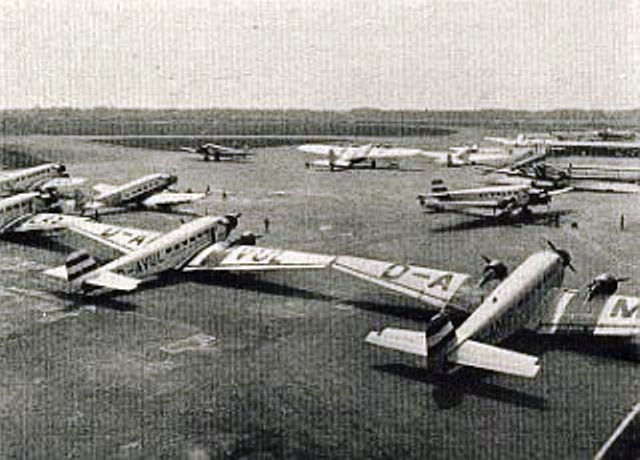
Lufthansa Ju 52 aircraft: should the Reich seize these?
I heard later, however, that what swayed the decision was Goebbels’ predictions of the effect the two options on public opinion. Seizing the aircraft would cause a level of discontent that would lead to a drop of 2% of production nationwide. Scrapping them would be twice as bad. After that announcement, Schacht as Armaments Minister was totally against any such action, and von Blomberg, Raeder and Bayerlein were nearly as adamant. Poor Hermann was by himself. News of the decision that Lufthansa was to remain in the air was greeted with joy, and all vestiges of discontent were swept away.
That same meeting also decided on the future of the Waffen SS. It is to be increased in size and also in quality. “Totenkopf” will become a panzer division, as will “Das Reich”. It sounded very impressive, but when I examined the minutes of the meeting, only one armour regiment has been funded. Several new SS units have been formed, but all are extremely poorly trained.
Von Neurath briefed the meeting on some diplomatic events. Republican Spain has pledged to assist France. At the moment we have no further details, but presumably that will not extend to providing troops. That fool Franco: how could he have lost when he nearly had the whole country under his control? After we had provided him with so much help? We shall see how brave Madrid is when our armies move west.
The other development surprised us all. Von Neurath was forced to admit that despite only yesterday advising that the USA was firmly neutral, it has effectively sided with the British. President Roosevelt has persuaded Congress to sign a bill approving “Cash and Carry” terms. The USA will sell arms to any nation that can pay cash and ship the goods. It is disguised as an open business arrangement, but we are no position to either pay cash, or to ship the goods across the Atlantic. Britain, however, can easily meet both requirements. We need to watch the USA closely.
Still no real action in Poland. There was another attack on Warszawa, but it was over in 2 hours. Von Manstein insists it was just a probe, but a probe involving 68,000 men? With two panzer divisions? I wondered whether it would have been called a probe had it gone a little better.
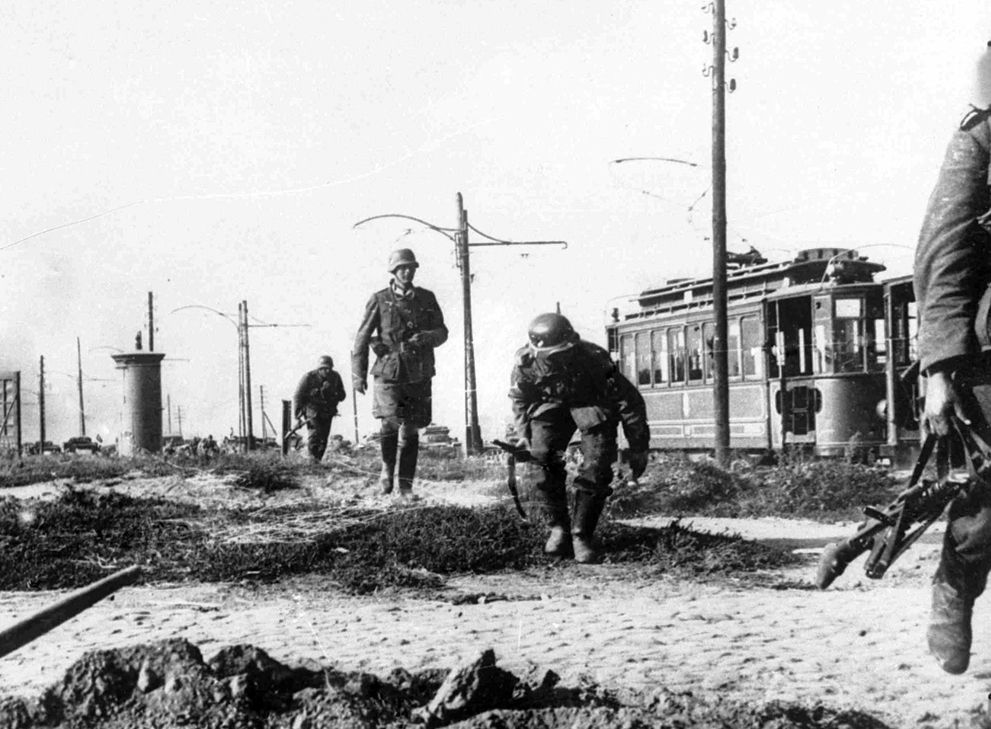
Our infantry move forward cautiously past a wrecked tram
On Friday, the Führer was in a foul mood. Yet another Cabinet meeting had been set up! Two days in a row he had been called upon to do work! He was tempted to allow me to take his place, but at the last moment he decided he must attend.
The first topic was an offer from the Soviet Union to sign a commercial agreement. They would provide us with a large amount of raw materials in exchange for production capacity, money and supplies. It was tempting, and apparently discussion was vigorous. Finally the offer was declined, but politely.
Our agents in Paris told us the British have agreed to send an Expeditionary Force to France. Not many details are available, but indications are that it will not be large. There will be no attempt by the Kreigsmarine to intercept the troop transports. For a start, we have no information what ports will be used.
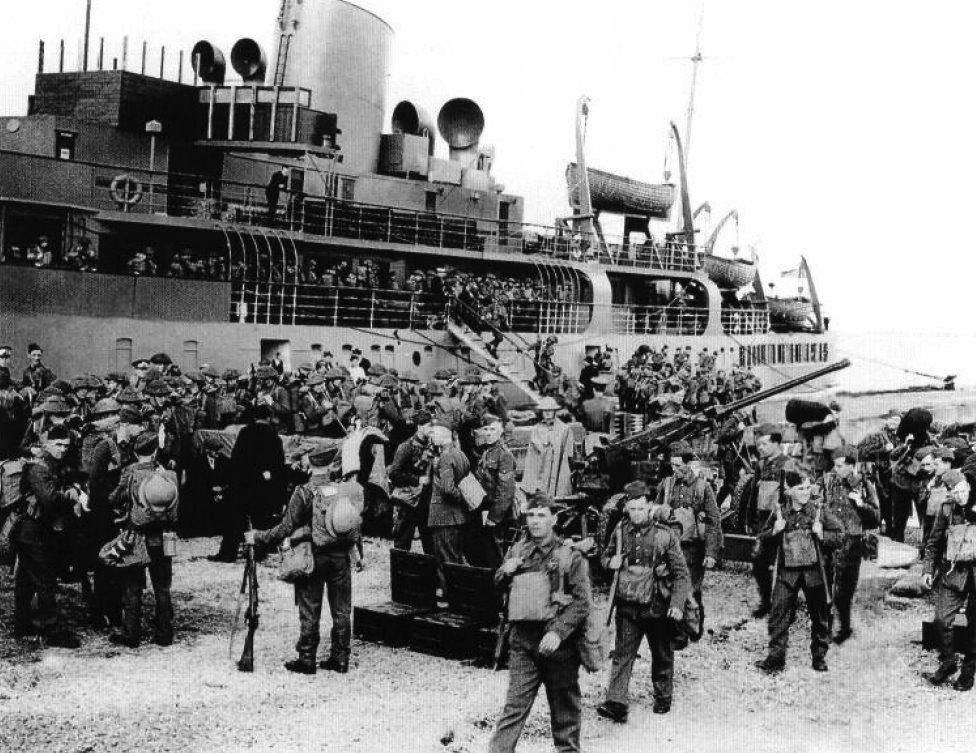
British soldiers disembark somewhere in France
I am beginning to think Herr Himmler is getting a bit too powerful. He must have somehow got himself made a regular attendee at Cabinet meetings, and he must have powerful allies. He has been able to get enough funds to start an SS Panzergrenadier division. Not only that, but he informed the Cabinet that even more SS Standarte units have been called up. The Waffen SS is becoming a sizeable force: perhaps enough to field an army of its own at some point in the future.
Admiral Raeder presented his solution to the British control of the seas: raiders. We will convert some transport ships to armed raiders and send them out to harass the sea-lanes. I believe that his main intention is to lure more of the Royal Navy away from the British Isles, allowing the Kriegsmarine a chance to contest the Nordsee at least. One ship is being converted: the “Atlantis”, HSK-2. It will be some time before it is ready to go to sea as fitting the six 150mm guns on concealed mountings is a lengthy job. We are already short of transports, so I am unsure how many more raiders we will be able to send out to challenge the British.
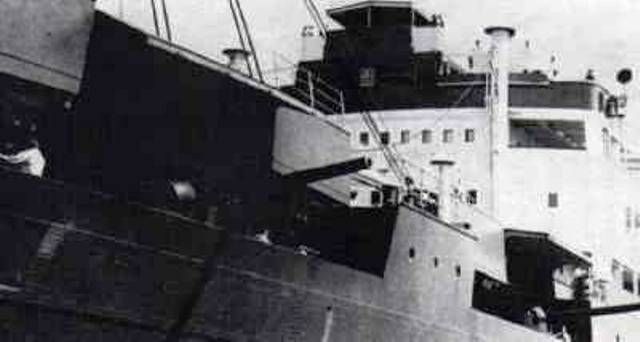
“Atlantis” raises its false sides and reveals its guns
The Heer (or at least a group of its more forward thinkers) pushed hard to form a new sort of unit: the “Kampfgruppe”. This is a combined arms unit supported by a motorised SS infantry unit. Its supporters claim this is the way of the future, a smaller, more flexible division. Von Blomberg must think these officers have a point, as he convinced Cabinet to approve the formation of “Kampfgruppe Kempf”. Once it has been built up to strength, it will be sent east for combat trials.
Since everyone was present, the Cabinet decided to also review research and production funding. (I can imagine the Führer’s eyes rolling back in despair! Financial discussions!). The success of our engineers in designing bridging equipment will allow faster movement. There was no argument. Further funding was approved. The next project, Infantry Unit Command and Control, was worthwhile, but after some debate, it was agreed that we need to prepare for the inevitable annexation of Poland. Partisan groups can be expected to arise, and therefore the development of suppression procedures should be a priority.
The final point was that the flak tower construction in Euskirchen has been completed. Ministers Bayerlein and Schacht joined together to argue that the industrial capacity freed up be used to produce supplies. There was little opposition. Whether that was because of the strength of their argument or that no-one wanted to risk upsetting the two men who controlled the economy is hard to say.
Last night it was the turn of 29.ID to test the Poles in Warszawa. Having discovered that they not only had sentries posted, but that they were heavily armed, General Kaufmann called back his men. It was an expensive lesson: more than 50 men lost.
After the Cabinet meeting everyone left for Nürnberg for the XI Party Congress. I’ll wait for the Leni Reifenstahl movie: I am sure it will be better than being there. I took the afternoon off myself. Why should I work when everyone else is away?
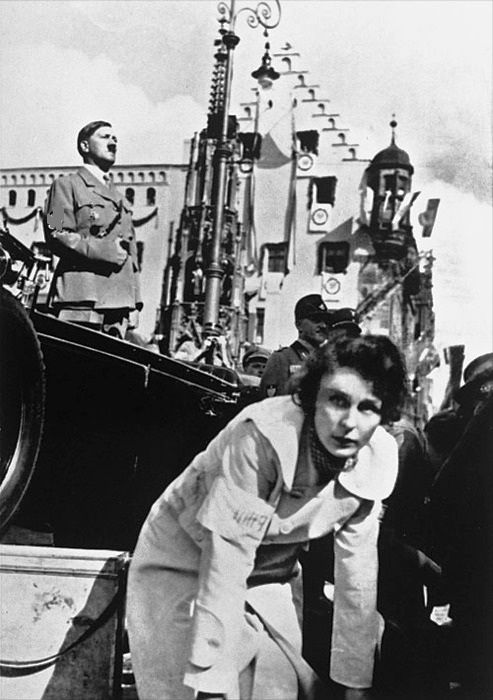
Leni Reifenstahl checks equipment during a rather long speech
Not much to do on Saturday with everyone in Nürnberg, attending the incongruously named Reichsparteitag des Freidens. (The name was chosen some time ago, by someone who had no idea of the planned events of late 1939. No-one could be bothered changing it). So I relaxed, wandering around the Kanzlei, reading documents left on desks, chatting to secretaries and domestic staff.
It was during my leisurely morning that I received a call from Hauptmann Lehmann. Could he see me in Berlin in a few days? He had run into an administrative problem and wanted my advice and/or assistance. I reassured him that it was no trouble, just to give me a call when he was in the city. When he hung I did wonder if I should have been more curious about his problem. I shouldn’t worry: Werner is a very trusting soul.
The Poles must have realised that if we recapture Jaworow the fall of Lwów would not be far off. That might explain the size of the attack on the Austrian Division in Jaroslaw. General Dreszer had three divisions with more than 50,000 men, while General Veiel had just 14,000. It may be hard for him to continue the attack on Jaworow, but we probably have enough forces already committed to that battle to succeed without the Austrian Division.
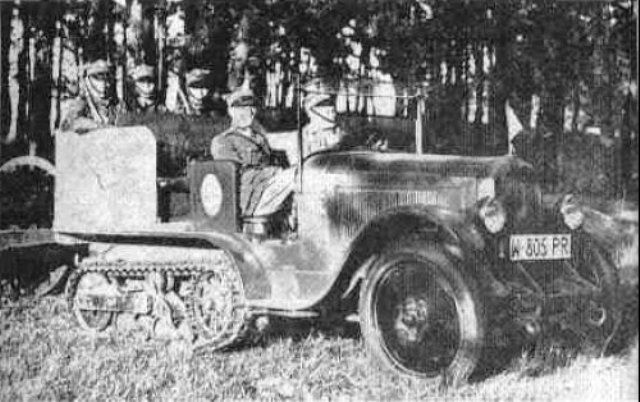
Not all members of the Kawalerii Brygada must travel by horse: these troops heading into Jaroslaw use a Citroen half track
There was yet another attack on Warszawa in the afternoon: it was looking as though von Manstein was getting ready for an all-out assault. This attack was made by 21.ID (mot), and von Knobelsdorff kept his men going for 4 hours.
Nürnberg dominated the news on Saturday. Lots of speeches and announcements were made at the Rally, leading to a boost in productivity and some increases in production. Yet another SS unit was paraded out, but it was the Führer’s speech about the war that caused shock waves. France was to be crushed, totally and without mercy. No armistice, no peace negotiations. The Wehrmacht would continue west until it reached the Atlantic and the French government agreed to unconditional surrender.

The crowd cheers the announcement that France must surrender unconditionally: do they realise this will prolong the fight?
I think this decision may have been influenced by the insolence of the Spanish in offering to help the French. Hitler may be thinking of conquering Spain, with the aim of closing the Mittelmeer. And putting the Spanish in their place. I am unsure of the wisdom of this decision. We still don’t know how long it will take to crack the French front line, let alone reach Paris. It may take months to force them to surrender. We don’t want to be bogged down in the mountains of northern Spain in late 1940.
Coincidentally, it was on 4th November that the remnants of our troops who “volunteered” to go to Spain finally returned. The news shocked the nation, which had forgotten the shame of our defeat by the socialists and their communist allies. Public dissent with the war and the government rose markedly. On the bright side, there were enough men and equipment to form another Kampfgruppe (“88”) and a both a tactical bomber and an interceptor geschwader . Not to mention the vast amount of knowledge they brought back for our researchers. This gave a significant boost to Luftwaffe projects to improve our pilot and ground crew training, and provided insights into schwerpunkt and blitzkrieg tactics.
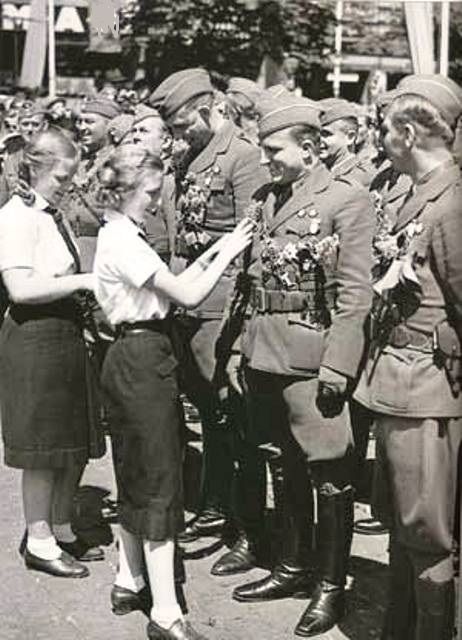
Despite the fanfare, the pretty girls and the medals, the public still knows that our men were defeated in Spain
Very little for me to do that day though. The research committee rubberstamped an extension for the Mobile Unit Command and Control project, and news came in that Euskirchen had been bombed overnight. It must have been quite discouraging, as the population had been busy cleaning and repairing for the past week.
With spare time, I was able to flip through the debriefing notes from Luftflotte III. Förster’s pilots had startling news: the province of Pultusk was now crammed with more than 150,000 Polish soldiers, survivors of a dozen lost battles. General Kaupisch, co-ordinating the attack on Pultusk, has a real job on his hands.
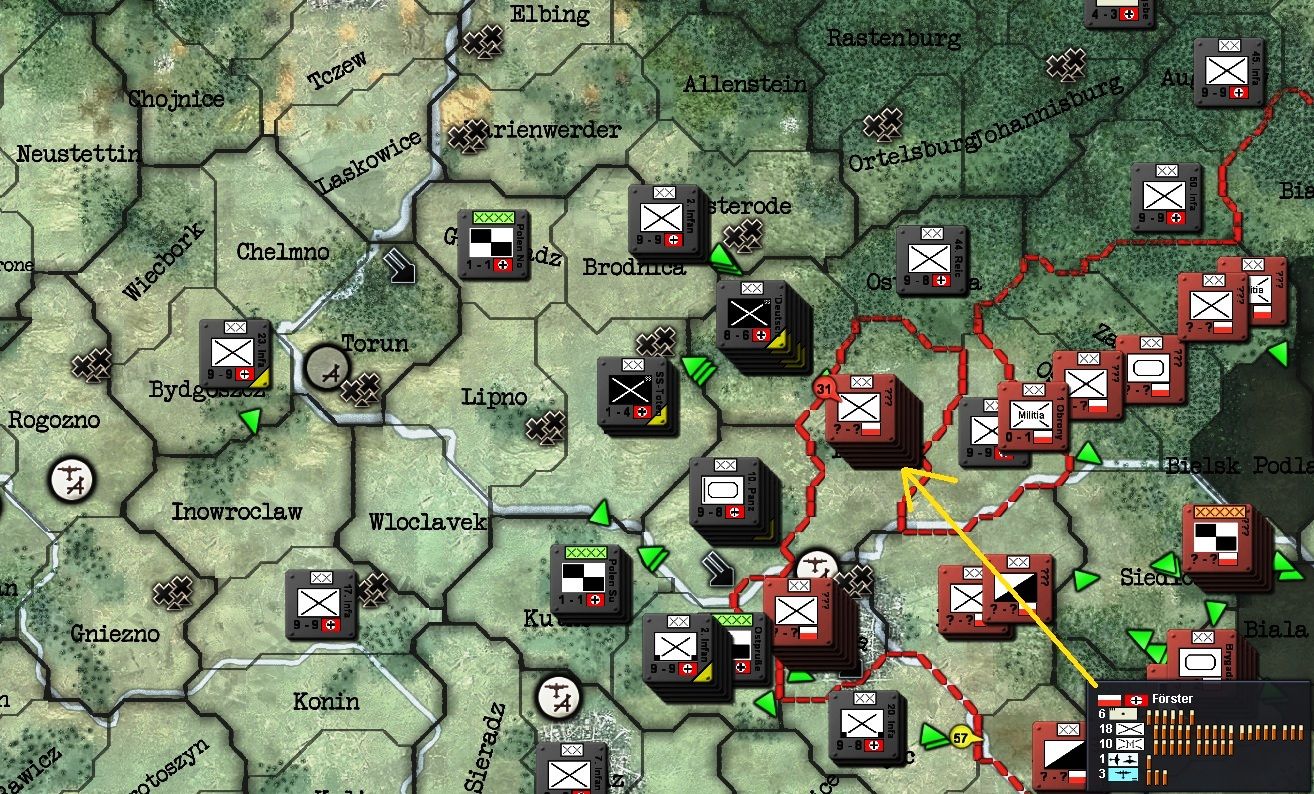
Aerial reconnaissance shows Pultusk to be packed with potential defenders
The only sign that any of our generals understood that Fall Weiß was behind schedule was that Praga was attacked. General Kuntzen and 4.PzD have an uphill battle: as soon as contact was made with the Poles it was realised that Praga was far more strongly held than anticipated. I had a bad feeling about this battle; it could be another costly disaster.
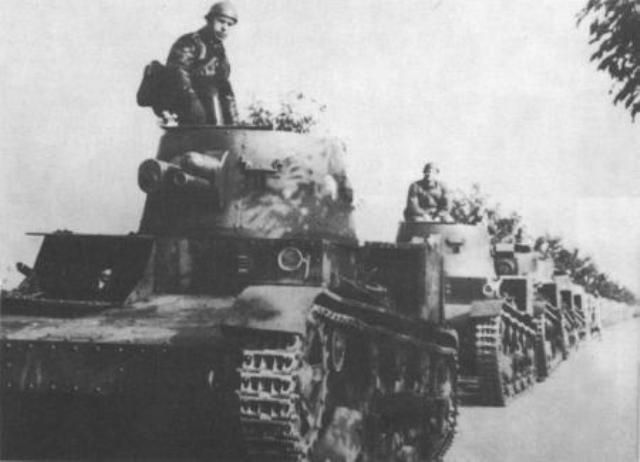
Vickers 5 light tanks of Krakowska BK moving to defend Praga
The lack of action by the Wehrmacht continued on November 5th. Perhaps I shouldn’t say lack of action. I am sure that most of our troops are busy. What I see is a lack of progress. It is the task of the High Command to turn the activity of the Heer into results and in Berlin we had seen few results since the collapse of the Torun pocket. At 1PM von Küchler made a point of informing the Kanzler that Jaworow had been recaptured, and with minimal casualties. Given the number of our dead already scattered across the province, it was possibly not a point to stress.
It is once again the lack of missions flown by the Luftwaffe that is raising temperatures. Minister Göring has fled Berlin, claiming he has gone to the front to see for himself what the problems are. Goebbels has been telling anyone who will listen to him that it was to avoid being called to the Reichskanzlerei for another chat with the Führer. I don’t know what the reason is, but it is not the weather. The Poles had no problems in bombing our troops.
We did get two ground attacks that day, though one was another inspection of the Warszawa defences, this time by General de Angelis. (Soon every one of our units will have a good idea of the enemy capital’s outer suburbs). The other battle was in the east, at Bialystok, where 1.ID and 45.ID have a tough fight against a fresh 12th Dywizija Piechoty which is firmly settled into the city and by all accounts is looking to halt our advance.
It was noticeable the next day that Goebbels had stopped telling his story about Göring fleeing the capital. Whatever the reason for the Reichsmarschall’s trip east, it had got results. At least five of our air fleets suddenly found they had aircraft, pilots, fuel and bombs. Only eight missions flown, but a vast improvement. I might suggest that von Blomberg be sent to the front to talk to his generals. There were no victories and no new battles on the 6th. Admittedly there were no defeats, but that is beside the point. Poland must be defeated and quickly. If our current commanders will not or cannot do this, then Germany may be in danger of being invaded itself, from the west. Or even, as von Bock often warns us, from the north, by a British naval invasion.
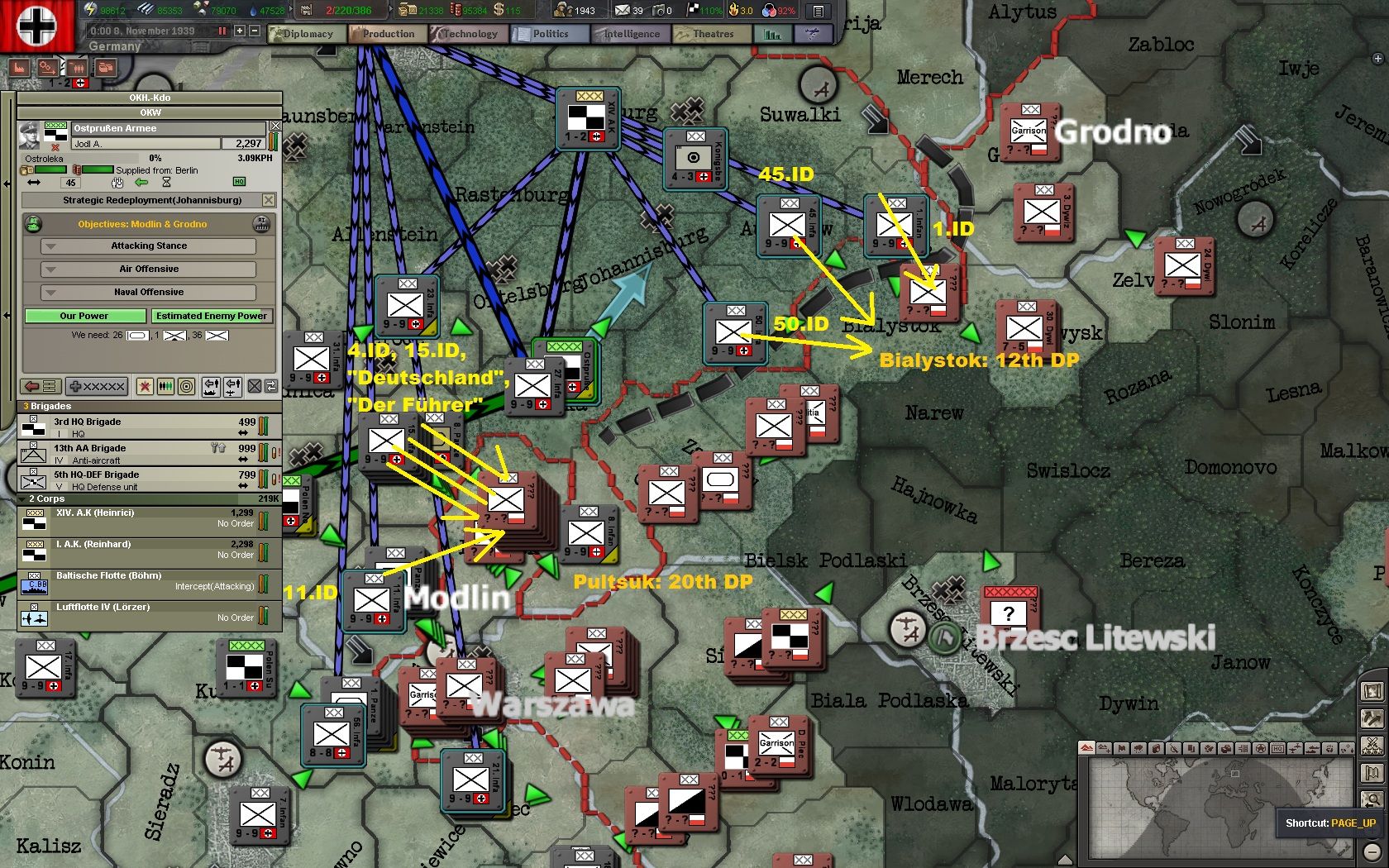
Ostprußen Armee at midnight 7th November 1939: Pultusk is being abandoned
That did give me time to have my meeting with Hauptmann Lehmann. He did not look well. Physically he was fine, but his face was drawn and he seemed to be under stress. He sat down and blurted out his tale of woe with hardly a breath. He had returned to his regiment and been told he must undergo a routine medical, he had failed the medical as the doctor ruled he did not have “100% function” in his hands, due to the scar tissue from his burns. He was to be discharged. What should he do? The Wehrmacht was his life, all he had ever wanted to do. Could I help?
I listened attentively, a sympathetic expression on my face, before explaining that my hands were tied. These regulations were written for a reason, and to interfere would be to go against the Wehrmacht’s own view of what it required from its soldiers, airmen and sailors. Not even the Fuhrer had the right to weaken the Reich’s only defence: the Wehrmacht.
This prompted another outburst: he was fit and capable. He could fire any weapon, perform any task that would occur in combat. It was only a stupid medical test he failed.
Again I was the voice of reason. The doctors know best, they wouldn’t say these things if they were not certain he might be a risk to his fellow soldiers. Had he thought of alternatives? I knew that the head of filing at the Reichskanzlei was always on the look-out for clerks. Or perhaps a supervisory job on one of Bayerlein’s road gangs?
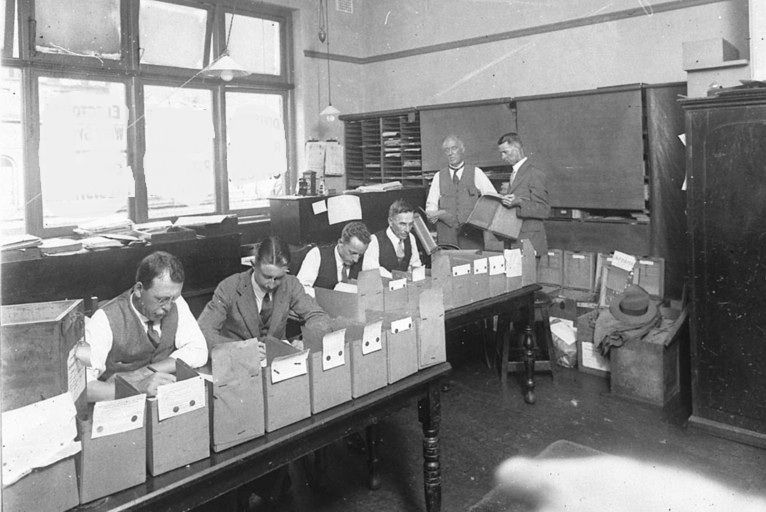
Filing clerks are needed as well as dashing infantry Hauptmänner but Werner seems strangely resistant to an office career.
That was all it needed: an obviously angry Hauptmann stood and marched out, shouting “Gretchen said you would not help – it seems she was right!” So Fräulein Trost is now “Gretchen”. Another fact to be filed away. Otherwise, everything going as expected. All I had to do was wait. Well, not quite all. A couple of telephone calls to the newly formed Foreign Bureau of the Wehrmacht to finalise arrangements. Time for Step Three.
My meeting had taken a fair amount of time but a quick check showed I had missed nothing of importance. The Luftwaffe didn’t improve its performance, but it did maintain it, even in the face of several attacks by Polish fighters. (Wever’s Stukas were hurt over Praga and could only carry out one mission). Still nothing from the Heer. I checked regularly all day, but no news at all from our ground forces.
There was one interesting snippet of information. Some of our agents in Poland claimed that there had been an uprising in Luboml, and this was confirmed by aerial reconnaissance. It must have been quite serious, as we know at least one division has been diverted from the front to put down the rebellion. We have no idea of the cause, but Frick cites it as evidence of a breakdown of control by the Polish government.
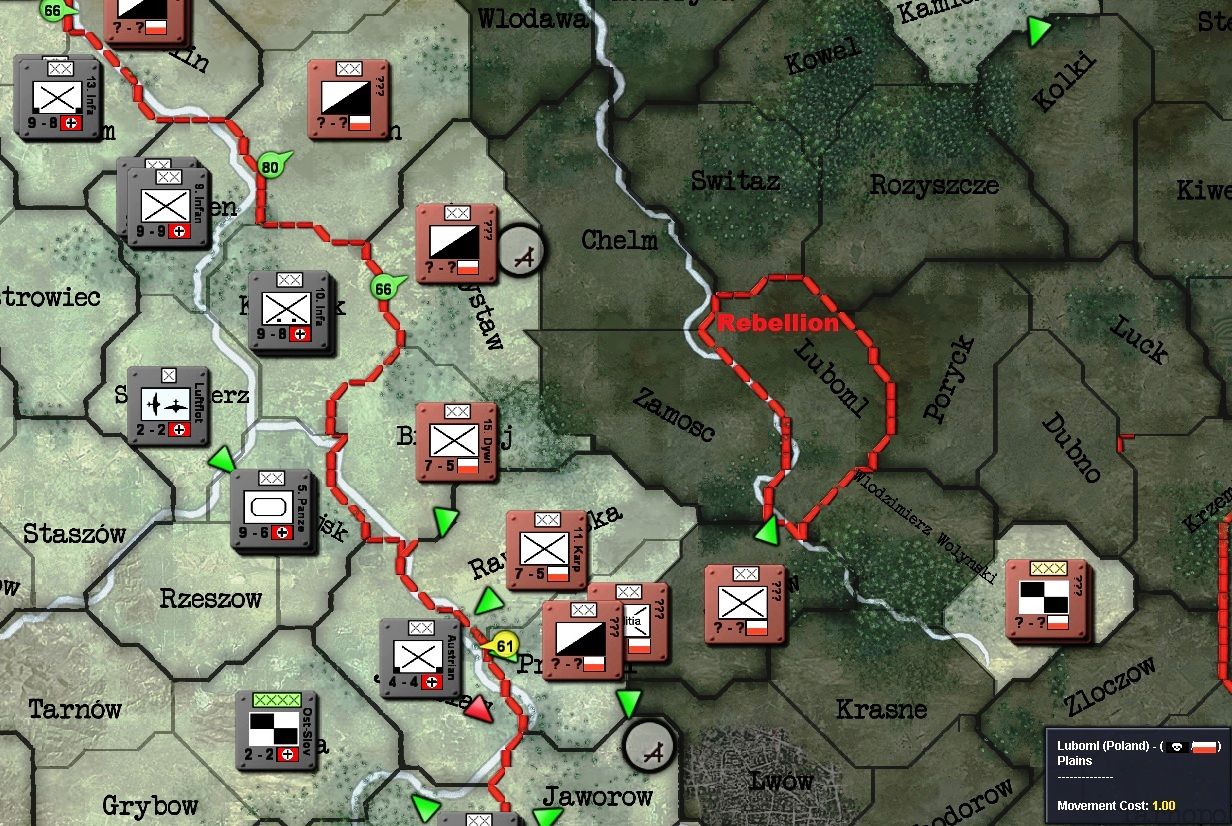
Signs of rebellion: could the Poles self destruct?
Tuesday Wever got his aircraft back in the air, but only temporarily. Sznuk intercepted Schachtluftflotte V over Praga and after being reduced to just less than 250 aircraft (out of 300), Wever refused to send his pilots out again.
It may be coincidence, but at noon Kuntzen abandoned his attempt to take Praga. Even with heavy Luftwaffe assistance it was going to be tough, without any air support it would be impossible. That 4.PzD suffered three times the casualties it imposed was an indication that things would only get worse. The Poles started with a three to one advantage in numbers, so perhaps 600 men lost in 50 hours could be seen to be getting off lightly.
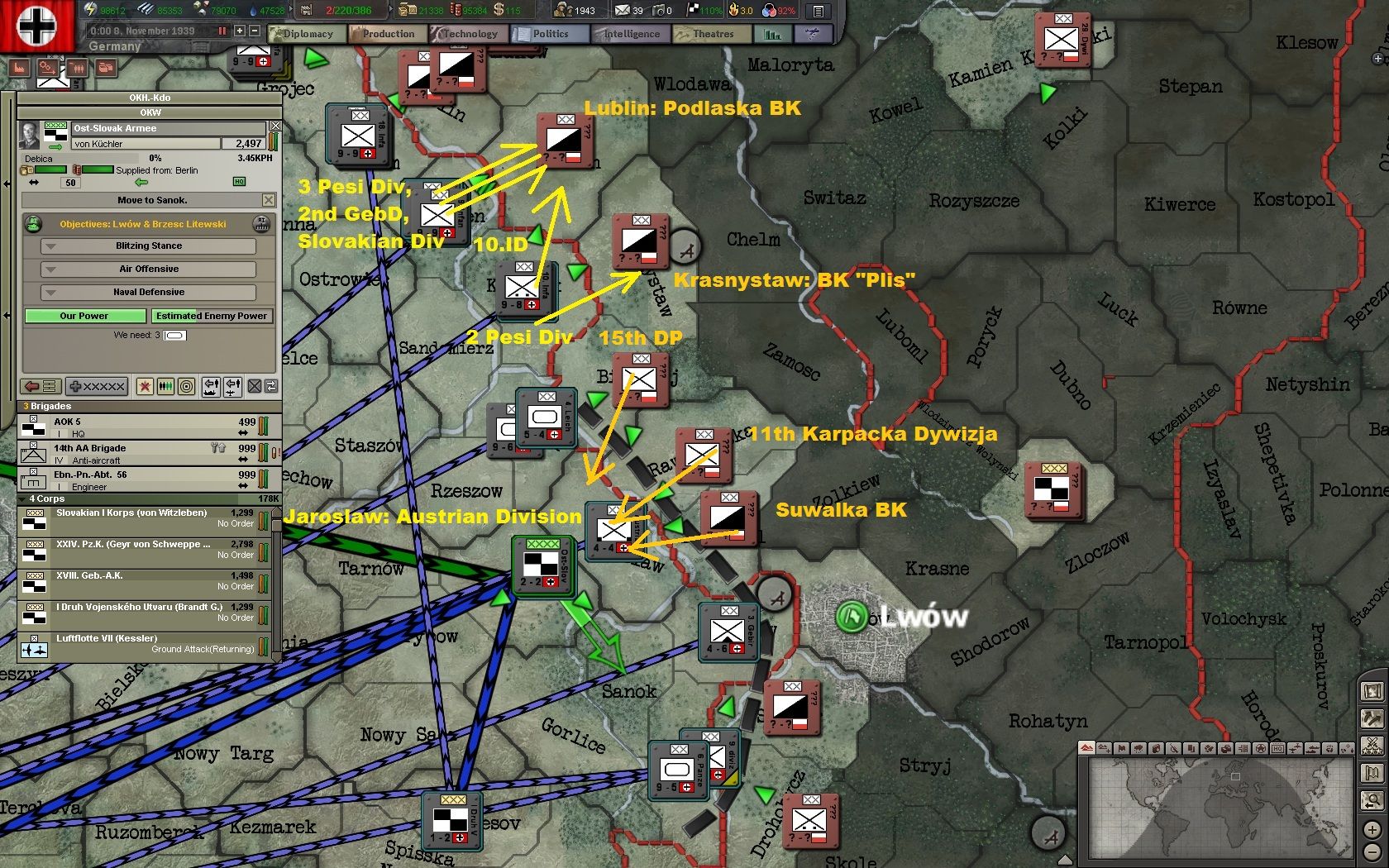
Ost – Slovak Armee at midnight 7th November 1939
Although our commanders seemed to be incapable of organising an attack, the Poles were not as passive. General Schubert, who had taken easily taken Brok on 29th October, was forced to fight to keep it. Two divisions and a previously unknown cavalry brigade (“Mazowiecka”), all in top condition, were able to shock 8.ID, but the men rallied and the Poles gave up after a few hours. It was a reminder that despite the large number of weakened Polish units, considerable forces remain untouched in the east of the country.
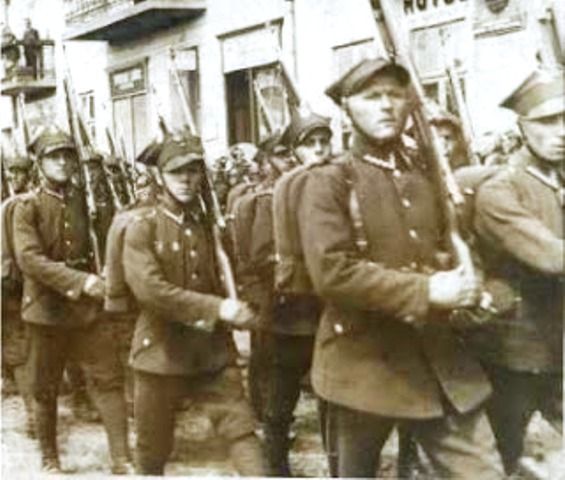
Fresh and with high morale, a Polish unit advances into Brok
The last news before I sat down to write this entry was that the RAF tried a new tactic: a dusk raid on Leipzig. If they thought this would catch Dörstling off guard they were wrong: he was ready and waiting. His pilots claimed 45 kills. That should buy some respite for the repair crews.
And having completed my journal, time for some respite for myself. A last evening stroll through Berlin before the bitter cold hits.
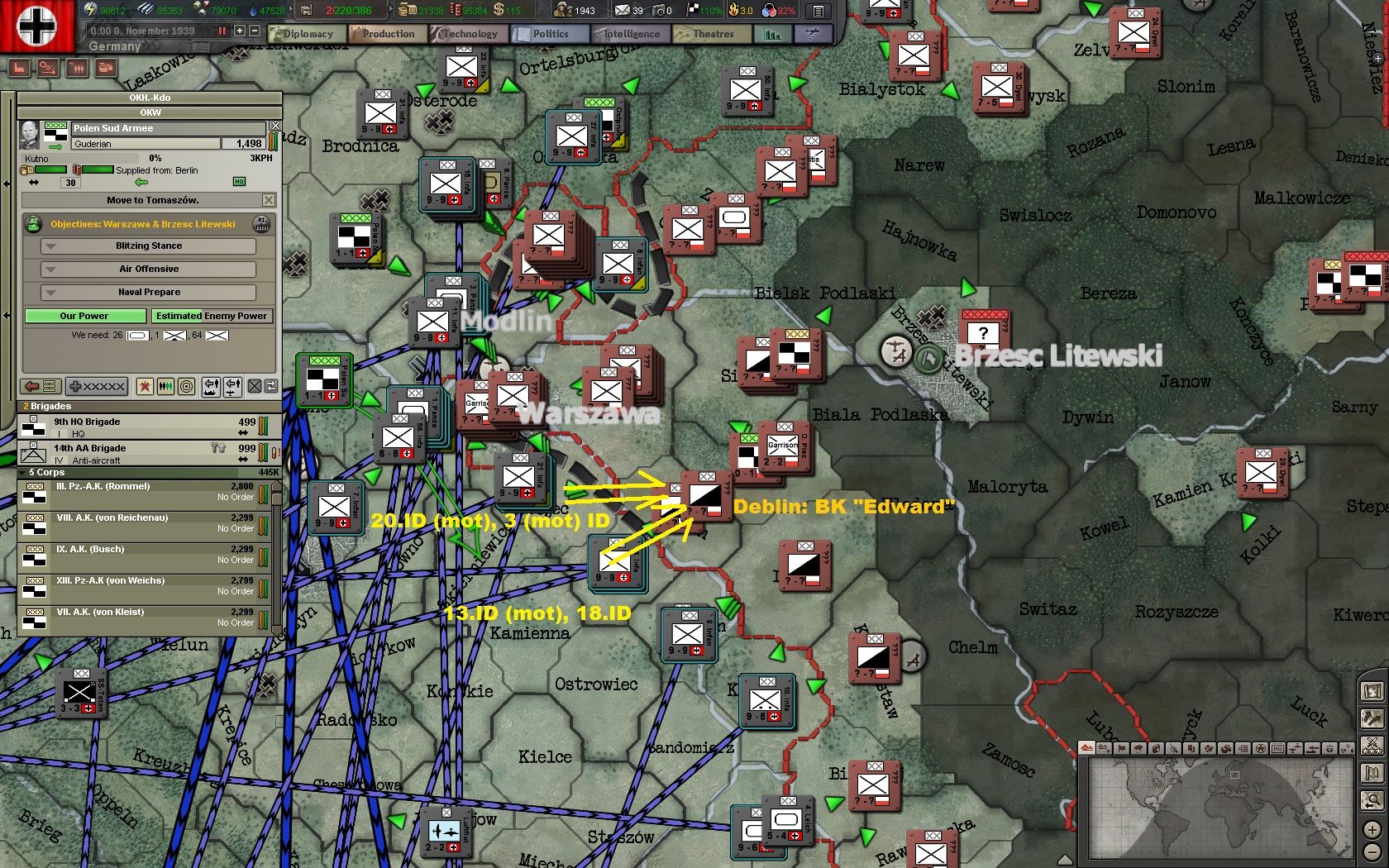
Polen Armee Sud at midnight 7th November 1939
The man picks up “Das Reich” magazine and thumbs through it. He frowns, puts it back and moves away from the stall. He opens a folder he has been carrying and looks as what appear to be draft pages of some sort of publication and smiles. Closing the folder he turns and heads back the way he came, his steps now indicating a man with a specific destination in mind.
Code:
[B][SIZE=4]Fall Weiß[/SIZE][/B]
[B]Finalised Battles for the period 1st to 7th November 1939[/B]
Warszawa 58 (68,154) 25 (50,961)
2nd Warszawa 53 (26,991) 1 (50,932)
3rd Warszawa 140 (16,789) 40 (50,930)
4th Warszawa 103 (44,469) 15 (50,959)
Jaworow 171 (42,182) 2,241 (11,480)
Praga 661 (44,280) 286 (74,173)
Brok 79 (26,674) 54 (53,559)
Total [B]1,265[/B] [B]2,662[/B]
[B]Bombing Summary for the period 1st to 7th November 1939[/B]
[I]Luftwaffe[/I]
Jaworow Luftflotte VIII 31, 27, 1, 10, 3, 20, 4, 33 (129)
Pultusk Luftflotte III 100, 133, 170, 47, 87, 207 (744)
Luftflotte IV 222, 361, 141, 222, 361, 141, 239, 284, 168 (2,139)
Rawa Ruska Luftflotte VIII 4, 29, 4, 29 (66)
Bilgoraj Luftflotte VII 41, 43, 41, 43 (168)
Praga Schlachtluftflotte V 23, 23, 69 (114)
Przemysl Luftflotte VII 104, 31, 22 (157)
Total [B]3,517[/B]
[I]Polish Air Force[/I]
Ostraleka Lewandowski (2 x CAS) 2, 10, 1, 10, 4, 23 (50)
Stachow (2 x TAC) 29
Brok Beseliak (2 x TAC) 2, 29 (31)
Total [B]110[/B]
Fall Weiß German losses (1 – 7 November) 1,265 + 110 = 1,375
Fall Weiß Polish losses (1 – 7 November) 2,662 + 3,517 = 6,179
[B]Fall Weiß Cumulative Losses[/B]
German Ground Losses 1,265 + 36,240 = 37,505
German Bombing Losses 110 + 930 = 1,040
Total German Losses 1,375 + 37,170 = 38,545
Polish Ground Losses 2,662 + 78,739 = 81,401
Polish Bombing Losses 3,517 + 34,382 = 37,899
Total Polish Losses 6,179 + 113,121 = 119,300
[B][SIZE=4]Westwall[/SIZE][/B]
[B]Bombing Summary for the period 1st to 7th November 1939[/B]
Saarbrucken Poli Marchetti (2 x TAC) 18, 8, 55, 39, 34, 39, 34 (227)
Odic (2 x TAC, NAV) 18, 57, 26 (101)
Total [B]328[/B]
Westwall German Losses (1 - 7 November) Nil + 328 = 328
Westwall French Losses (1 - 7 November) Nil + Nil = Nil
[B]Westwall Cumulative Losses[/B]
German Ground Losses Nil + 243 = 243
German Bombing Losses 328 + 1,883 = 2,211
Total German Losses 328 + 2,126 = [B]2,454[/B]
French Ground Losses Nil + 377 = 377
French Bombing Losses Nil + Nil = Nil
Total French Losses Nil + 377 = [B]377[/B]
[B][SIZE=4]Overall Casualties to date[/SIZE][/B]
German Poland 37,505 (Ground) + 1,040 (Bombing) = 38,545
Westwall 243 (Ground) + 2,211 (Bombing) = 2,454
Total 37,748 + 3,251 = 40,999
Polish Poland 81,401 + 37,899 = 119,300
French Westwall 377 + Nil 377
[B][SIZE=4]War at Sea[/SIZE][/B]
Current Prior Total
U-boat losses Nil Nil Nil
Convoy losses French Nil 4 4
British Nil 4 4
German Nil 4 4
Warship Losses
Destroyer British Nil 1 1
German Nil 1 1
Light Cruiser British Nil 1 1
Last edited:


